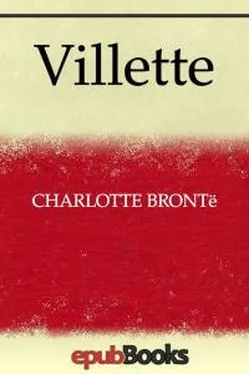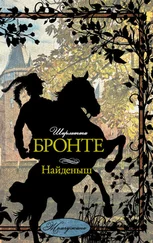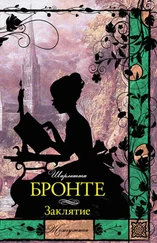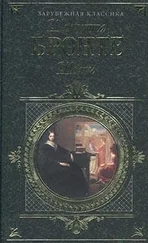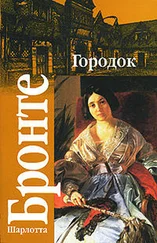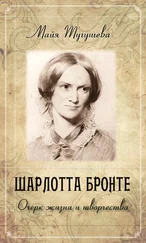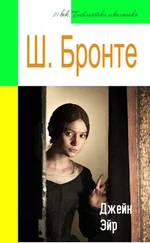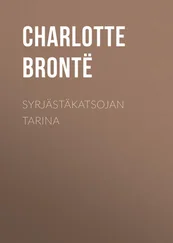Шарлотта Бронте - Villette
Здесь есть возможность читать онлайн «Шарлотта Бронте - Villette» — ознакомительный отрывок электронной книги совершенно бесплатно, а после прочтения отрывка купить полную версию. В некоторых случаях можно слушать аудио, скачать через торрент в формате fb2 и присутствует краткое содержание. Год выпуска: 2014, Издательство: epubBooks Classics, Жанр: Исторические любовные романы, на английском языке. Описание произведения, (предисловие) а так же отзывы посетителей доступны на портале библиотеки ЛибКат.
- Название:Villette
- Автор:
- Издательство:epubBooks Classics
- Жанр:
- Год:2014
- ISBN:нет данных
- Рейтинг книги:3 / 5. Голосов: 1
-
Избранное:Добавить в избранное
- Отзывы:
-
Ваша оценка:
- 60
- 1
- 2
- 3
- 4
- 5
Villette: краткое содержание, описание и аннотация
Предлагаем к чтению аннотацию, описание, краткое содержание или предисловие (зависит от того, что написал сам автор книги «Villette»). Если вы не нашли необходимую информацию о книге — напишите в комментариях, мы постараемся отыскать её.
Villette — читать онлайн ознакомительный отрывок
Ниже представлен текст книги, разбитый по страницам. Система сохранения места последней прочитанной страницы, позволяет с удобством читать онлайн бесплатно книгу «Villette», без необходимости каждый раз заново искать на чём Вы остановились. Поставьте закладку, и сможете в любой момент перейти на страницу, на которой закончили чтение.
Интервал:
Закладка:
The afternoon hours were over, and the stiller time of evening shaded the quiet faubourg. M. Paul claimed my hospitality; occupied and afoot since morning, he needed refreshment; he said I should offer him chocolate in my pretty gold and white china service. He went out and ordered what was needful from the restaurant; he placed the small guéridon and two chairs in the balcony outside the French window under the screening vines. With what shy joy i accepted my part as hostess, arranged the salver, served the benefactor–guest.
This balcony was in the rear of the house, the gardens of the faubourg were round us, fields extended beyond. The air was still, mild, and fresh. Above the poplars, the laurels, the cypresses, and the roses, looked up a moon so lovely and so halcyon, the heart trembled under her smile; a star shone subject beside her, with the unemulous ray of pure love. In a large garden near us, a jet rose from a well, and a pale statue leaned over the play of waters.
M. Paul talked to me. His voice was so modulated that it mixed harmonious with the silver whisper, the gush, the musical sigh, in which light breeze, fountain and foliage intoned their lulling vesper:
Happy hour—stay one moment! droop those plumes, rest those wings; incline to mine that brow of Heaven! White Angel! let thy light linger; leave its reflection on succeeding clouds; bequeath its cheer to that time which needs a ray in retrospect!
Our meal was simple: the chocolate, the rolls, the plate of fresh summer fruit, cherries and strawberries bedded in green leaves formed the whole: but it was what we both liked better than a feast, and I took a delight inexpressible in tending M. Paul. I asked him whether his friends, Père Silas and Madame Beck, knew what he had done—whether they had seen my house?
"Mon amie," said he, "none knows what I have done save you and myself: the pleasure is consecrated to us two, unshared and unprofaned. To speak truth, there has been to me in this matter a refinement of enjoyment I would not make vulgar by communication. Besides" (smiling) "I wanted to prove to Miss Lucy that I could keep a secret. How often has she taunted me with lack of dignified reserve and needful caution! How many times has she saucily insinuated that all my affairs are the secret of Polichinelle!"
This was true enough: I had not spared him on this point, nor perhaps on any other that was assailable. Magnificent–minded, grand–hearted, dear, faulty little man! You deserved candour, and from me always had it.
Continuing my queries, I asked to whom the house belonged, who was my landlord, the amount of my rent. He instantly gave me these particulars in writing; he had foreseen and prepared all things.
The house was not M. Paul's—that I guessed: he was hardly the man to become a proprietor; I more than suspected in him a lamentable absence of the saving faculty; he could get, but not keep; he needed a treasurer. The tenement, then, belonged to a citizen in the Basse–Ville—a man of substance, M. Paul said; he startled me by adding: "a friend of yours, Miss Lucy, a person who has a most respectful regard for you." And, to my pleasant surprise, I found the landlord was none other than M. Miret, the short–tempered and kind–hearted bookseller, who had so kindly found me a seat that eventful night in the park. It seems M. Miret was, in his station, rich, as well as much respected, and possessed several houses in this faubourg; the rent was moderate, scarce half of what it would have been for a house of equal size nearer the centre of Villette.
"And then," observed M. Paul, "should fortune not favour you, though I think she will, I have the satisfaction to think you are in good hands; M. Miret will not be extortionate: the first year's rent you have already in your savings; afterwards Miss Lucy must trust God, and herself. But now, what will you do for pupils?"
"I must distribute my prospectuses."
"Right! By way of losing no time, I gave one to M. Miret yesterday. Should you object to beginning with three petite bourgeoises, the Demoiselles Miret? They are at your service."
"Monsieur, you forget nothing; you are wonderful. Object? It would become me indeed to object! I suppose I hardly expect at the outset to number aristocrats in my little day–school; I care not if they never come. I shall be proud to receive M. Miret's daughters."
"Besides these," pursued he, "another pupil offers, who will come daily to take lessons in English; and as she is rich, she will pay handsomely. I mean my god–daughter and ward, Justine Marie Sauveur."
What is in a name?—what in three words? Till this moment I had listened with living joy—I had answered with gleeful quickness; a name froze me; three words struck me mute. The effect could not be hidden, and indeed I scarce tried to hide it.
"What now?" said M. Paul.
"Nothing."
"Nothing! Your countenance changes: your colour and your very eyes fade. Nothing! You must be ill; you have some suffering; tell me what."
I had nothing to tell.
He drew his chair nearer. He did not grow vexed, though I continued silent and icy. He tried to win a word; he entreated with perseverance, he waited with patience.
"Justine Marie is a good girl," said he, "docile and amiable; not quick—but you will like her."
"I think not. I think she must not come here."
Such was my speech.
"Do you wish to puzzle me? Do you know her? But, in truth, there is something. Again you are pale as that statue. Rely on Paul Carlos; tell him the grief."
His chair touched mine; his hand, quietly advanced, turned me towards him.
"Do you know Marie Justine?" said he again.
The name re–pronounced by his lips overcame me unaccountably. It did not prostrate—no, it stirred me up, running with haste and heat through my veins—recalling an hour of quick pain, many days and nights of heart–sickness. Near me as he now sat, strongly and closely as he had long twined his life in mine—far as had progressed, and near as was achieved our minds' and affections' assimilation—the very suggestion of interference, of heart–separation, could be heard only with a fermenting excitement, an impetuous throe, a disdainful resolve, an ire, a resistance of which no human eye or cheek could hide the flame, nor any truth–accustomed human tongue curb the cry.
"I want to tell you something," I said: "I want to tell you all."
"Speak, Lucy; come near; speak. Who prizes you, if I do not? Who is your friend, if not Emanuel? Speak!"
I spoke. All escaped from my lips. I lacked not words now; fast I narrated; fluent I told my tale; it streamed on my tongue. I went back to the night in the park; I mentioned the medicated draught—why it was given—its goading effect—how it had torn rest from under my head, shaken me from my couch, carried me abroad with the lure of a vivid yet solemn fancy—a summer–night solitude on turf, under trees, near a deep, cool lakelet. I told the scene realized; the crowd, the masques, the music, the lamps, the splendours, the guns booming afar, the bells sounding on high. All I had encountered I detailed, all I had recognised, heard, and seen; how I had beheld and watched himself: how I listened, how much heard, what conjectured; the whole history, in brief, summoned to his confidence, rushed thither, truthful, literal, ardent, bitter.
Still as I narrated, instead of checking, he incited me to proceed he spurred me by the gesture, the smile, the half–word. Before I had half done, he held both my hands, he consulted my eyes with a most piercing glance: there was something in his face which tended neither to calm nor to put me down; he forgot his own doctrine, he forsook his own system of repression when I most challenged its exercise. I think I deserved strong reproof; but when have we our deserts? I merited severity; he looked indulgence. To my very self I seemed imperious and unreasonable, for I forbade Justine Marie my door and roof; he smiled, betraying delight. Warm, jealous, and haughty, I knew not till now that my nature had such a mood: he gathered me near his heart. I was full of faults; he took them and me all home. For the moment of utmost mutiny, he reserved the one deep spell of peace. These words caressed my ear:—
Читать дальшеИнтервал:
Закладка:
Похожие книги на «Villette»
Представляем Вашему вниманию похожие книги на «Villette» списком для выбора. Мы отобрали схожую по названию и смыслу литературу в надежде предоставить читателям больше вариантов отыскать новые, интересные, ещё непрочитанные произведения.
Обсуждение, отзывы о книге «Villette» и просто собственные мнения читателей. Оставьте ваши комментарии, напишите, что Вы думаете о произведении, его смысле или главных героях. Укажите что конкретно понравилось, а что нет, и почему Вы так считаете.
